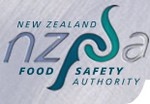Pukekohe man fined for importing copycat agrichemicals
A Pukekohe man who illegally imported and sold counterfeit agricultural chemicals has been fined $119,000 in a landmark case brought by the New Zealand Food Safety Authority (NZFSA).
Mark Freeman and Global Hort Imports NZ (of which Freeman was sole director) initially pleaded not guilty to a total of five charges under the Agricultural Compounds and Veterinary Medicines (ACVM) Act 1997, before changing the plea to guilty three days into the trial.
At Manukau District Court yesterday, Judge JH Lovell-Smith fined Freeman $25,000 for two charges of selling agricultural compounds that are not the registered trade name products, and $4000 for providing false or misleading information to an inspector.
The company was charged $70,000 for selling agricultural compounds that are not the registered trade name products and $20,000 for providing false or misleading information to an inspector.
Judge Lovell-Smith said Freeman’s conduct was the most serious type of offending under the ACVM Act.
“This was sustained, calculated and comprehensive illegal conduct which undermined the integrity of New Zealand’s regulatory oversight of the horticultural trade and New Zealand’s reputation for safe, high quality produce.”
The court heard how Freeman imported two shipments of counterfeit agricultural chemicals from China in 2005 and 2006, which he falsely labelled as fertiliser. Fertilisers are exempt from the need for registration as a trade name product.
The shipments totalled 19,300 litres and were worth about $213,000.
Freeman sold the first lot of chemicals as pesticides to four South Auckland vegetable growers. NZFSA received information about the second shipment and seized it before it was distributed.
NZFSA’s director of compliance and investigation Dr Geoff Allen was very pleased with the ruling, which followed three years of work by NZFSA.
"This ruling sends a clear signal to the industry that the illegal importation of agricultural chemicals will not be tolerated by the courts and we commend that. The hefty fines were appropriate for offending on such a scale.”
He said the case was primarily a fraud issue, but that there were potential food residue implications. NZFSA tests found the products’ active ingredients were similar to registered products, but some had marked variations in concentration and purity. Content labelling was false and instructions for use, operator safety and withholding and container disposal were non-existent.
“In this instance none of the chemicals would have posed unacceptable health risks to users or consumers of the crops treated with them, as long as they were used in the same way as the genuine registered products. But Mr Freeman had no way of knowing this and there is no guarantee subsequent imports would have been safe.”
NZFSA’s residue monitoring and surveillance programmes check that the use of agricultural compounds is proper and legitimate, and NZFSA and border agencies have put in place targeted systems and procedures to further protect consumers.
